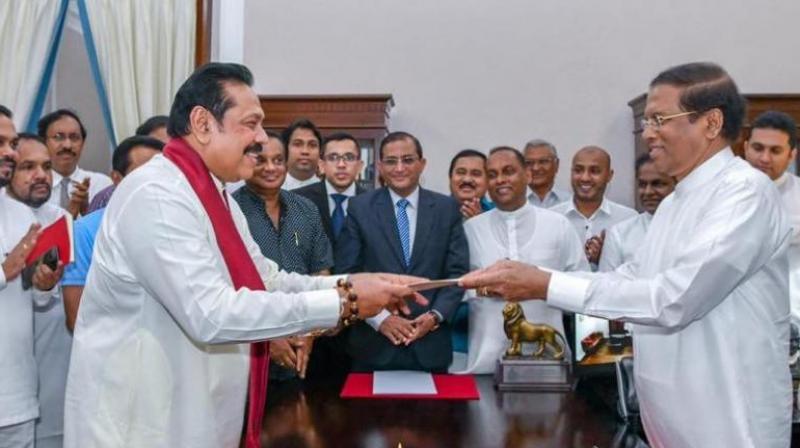Hope democratic values respected': India on Sri Lanka political crisis

New Delhi: India on Sunday said it was closely following the political developments in Sri Lanka and hoped that democratic values and constitutional process would be respected in the island nation.
In fast-paced political developments, Sri Lankan President Maithripala Sirisena suspended Parliament on Saturday, a day after sacking Prime Minister Ranil Wickremesinghe and naming Mahinda Rajapaksa as the new prime minister.
"India is closely following the recent political developments in Sri Lanka. As a democracy and a close friendly neighbour, we hope that democratic values and constitutional process will be respected," External Affairs Ministry Spokeperson Raveesh Kumar said.
Kumar said India will continue to extend its developmental assistance to the friendly people of Sri Lanka. India has been involved in a number of projects in the island nation.
Sirisena on Saturday suspended Parliament till November 16 after Wickremesinghe sought an emergency session to prove his majority. Former president Rajapaksa was sworn in as the country's new PM on Friday.
The political turmoil came amid growing tensions between Sirisena and Wickremesinghe on several policy matters.
Reacting sharply to his sacking, Wickremesinghe asserted that the swearing-in of Rajapaksa is "illegal and unconstitutional" and he will prove his majority in Parliament.
The political developments unfolded after Sirisena's broader political front UPFA announced that it has decided to quit the current unity government with Wickremesinghe's UNP. The unity government was formed in 2015 when Sirisena was elected President with Wickremesinghe's support, ending a nearly decade-long rule by Rajapaksa.
Rajapaksa's return to power ends a more than three-year-old coalition government that was formed by Sirisena and Wickremesinghe on a promise to combat corruption and financial irregularities.
The unity government was thrown into a crisis after Rajapaksa's new party pulled off a stunning victory in local elections in February seen as a referendum on the ruling alliance.
Sri Lanka nearly faced economic sanctions from the West over Rajapaksa's military crackdown on the banned Liberation Tigers of Tamil Eelam (LTTE).
The LTTE sought a separate Tamil homeland in the northern and eastern provinces of the island nation for nearly 30 years before its collapse in 2009 after the Sri Lankan Army killed the outfit's supreme leader Velupillai Prabhakaran.

